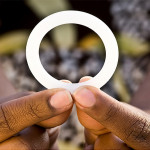Could your HIV prevention or treatment regimen be protecting your vision as you age? That’s the hypothesis of a basic science article that reviewed large insurance databases published recently in the Proceedings of the National Academy of Sciences.
For people with HIV, aging comes with a host of health concerns, including cardiovascular disease and diabetes. But thus far, eye and vision problems don’t seem to be near the top of that list. This is important because the condition the study authors looked at, dry macular degeneration, currently is untreatable.
The review accompanied a basic science study about the process by which macular degeneration darkens one’s vision. The condition occurs when the part of the retina called the macula wears down over time. It is the leading cause of vision loss in people over 60.
What the researchers found is that the buildup of DNA is an important part of one mechanism of cell death in the eye, which leads to loss of vision. They posit that nucleoside reverse transcriptase inhibitors (NRTIs) used for HIV pre-exposure prophylaxis (PrEP) and treatment, including Truvada (tenofovir disoproxil fumarate/emtricitabine) and Descovy (tenofovir alafenamide/emtricitabine)—which block the production of DNA—might slow or stop the progression of the eye disease.
Once the researchers learned that DNA production may be part of the vision loss process, they also realized that a lot of drugs are already available to stop it. So they took the next logical step: They looked to see whether people taking NRTIs for PrEP in four U.S. insurance databases comprising 100 million people were less likely to develop the condition. They found that people taking NRTIs had age-related macular degeneration 40% less often than their peers not taking NRTIs.
Right now, this is just a hypothesis. It has not been tested in a randomized, controlled trial—the gold standard of treatment and prevention research. Plus, the researchers didn’t study macular degeneration in people living with HIV specifically. So the results should be taken with an abundance of caution.
“We are extremely excited that the reduced risk was reproduced in all the databases, each with millions of patients,” Jayakrishna Ambati, MD, of the University of Virginia School of Medicine, said in a press release. “This finding provides real hope in developing the first treatment for this blinding disease.”
Click here to read the full abstract.
Click here to read the press release.







Comments
Comments